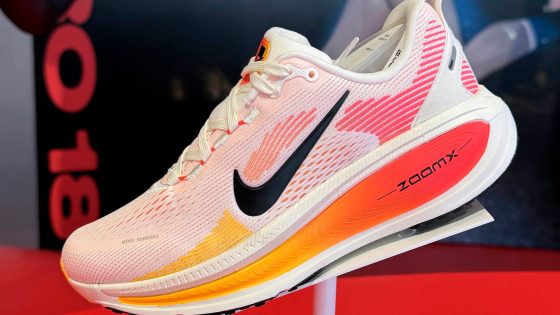On April 6, 2025, the ongoing tariff war initiated by former President Donald Trump continues to impact the supply chain of sports shoes. The tariffs imposed on imports from various countries, including Vietnam, have created significant challenges for major footwear brands, affecting their production and pricing strategies.
- Trump's tariff war impacts sports shoe supply chain
- Tariffs raise costs for sneakers and jeans
- Companies struggle to diversify from China
- Trump and Vietnam discuss potential tariff deal
- Retail stocks decline for Gap and Macy's
Key participants in this trade dispute include U.S. trade groups and companies like Nike and Adidas, which are grappling with rising costs and supply chain disruptions.
The tariff war has escalated over the past few years, with the footwear industry feeling the brunt of the trade tensions. Major brands have struggled to diversify their supply chains away from China, which has historically been a key manufacturing hub. The recent tariffs on imports from Vietnam, a country many companies turned to as an alternative, have further complicated the situation.
Recent reports highlight the following critical impacts of the tariffs:
- Increased production costs for footwear manufacturers.
- Stock prices of companies like Gap, Nike, and Levi’s have seen significant declines.
- Trade groups warn that consumers will face higher prices for sneakers, jeans, and other apparel.
As brands continue to navigate these challenges, they are also exploring new markets and production strategies. However, the uncertainty surrounding tariffs remains a major hurdle. Companies are under pressure to maintain profit margins while facing rising costs, leading to potential price increases for consumers.
In summary, the ongoing tariff war is significantly affecting the sports shoe supply chain, with major brands facing rising costs and stock market challenges. As companies adapt to these changes, consumers may soon see the effects reflected in retail prices.

































